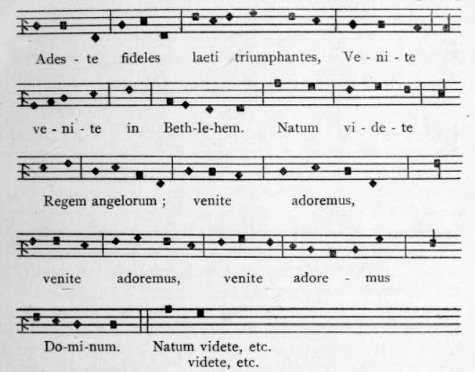The Greatest Christmas Song?
The greatest Christmas song of all time. A tough choice! When asked what my favourite is, I usually choose It Came Upon A Midnight Clear. But that’s not what this article is about.
For popular songs in English, it would be hard to beat Hark! The Herald Angels Sing – a remarkable song, which would probably make my top 5.
After my lament last week about the songs considered the greatest Christmas songs of all time, maybe it’s surprising that the song I finally picked has been on the charts as a popular hit, more than once (in fact, in the USA it hit the Top 10 three times in the 20th century!). But its history starts further back.
The origins of this song have been a bit of a mystery – in fact, they are still somewhat mysterious. For a long time the author was unknown, and even then it’s possible that the basic text came from elsewhere.
So we’ll leave aside the murky origins of some of the text, and get right to the actual writing of the song. According to scholar John Stephan, who studied the manuscripts extensively, the words and music were written by John Francis Wade. Wade lived at various times in England and France, but actually wrote the hymn in Latin, in the early 1740s.
That brings us to Frenchman Étienne-Jean-François Borderies, who, hearing the song in England later that century, went back to France and wrote two more verses, also in Latin.
The song spread fast, and became increasingly popular. Some of the verses were eventually translated into English by Frederick Oakeley, in 1841, and other verses by William Thomas Brooke in 1884.
But in the decades after it was written, it was translated into many languages, such as Spanish (by Spaniard Juan Bautista Cabrera).
You’ve probably heard this song in Latin, as well as English. In Latin, it’s Adeste Fideles. In Spanish, Venid Fieles Todos.
In English, it was originally “Ye faithful, Approach Ye” – rather awkward, but it quickly became known as it is known today – O Come, All Ye Faithful.
Whatever the origins of this song, the remarkable thing about it is the way it reflects Scripture. Well, that’s one remarkable thing. It’s popularity is also remarkable, and in both Latin and many other languages, both in many types of churches as well as outside the Church.
From now until Christmas Eve, we’ll take a closer look at this song, especially in the light of the Bible, and whether you agree with my choice or not, maybe you’ll have an idea why I chose it.

Sources: O Come, All Ye Faithful, Today in 1802 – Frederick Oakeley Born, O Come, All Ye Faithful, Today in 1786 – John Wade Died, Celebremos Su Gloria
